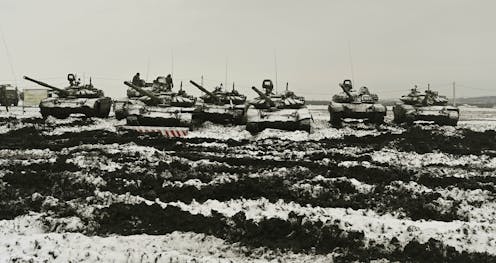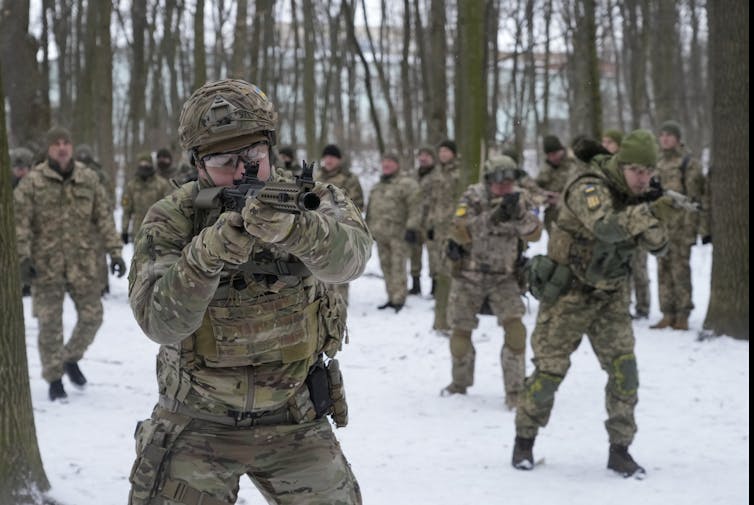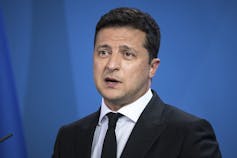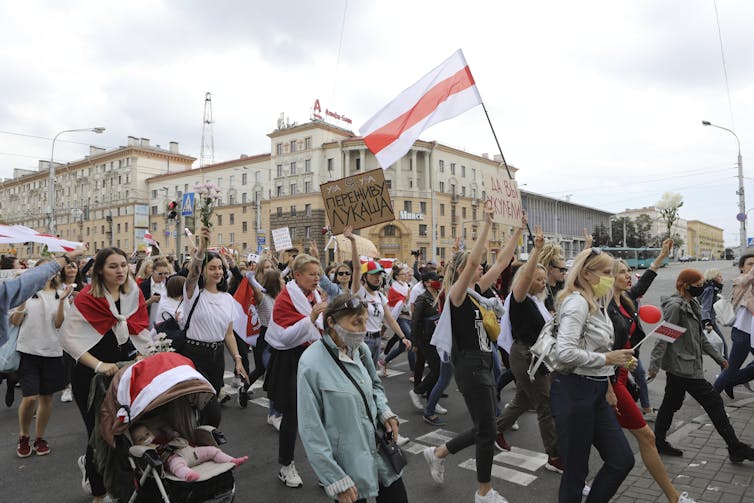
The international crisis created by Russia over NATO’s eastern expansion has brought Europe to its most critical moment since the dissolution of the state of Yugoslavia in the early 1980s.
On the surface, the crisis appears to be artificial in that there is no obvious NATO threat to the Russians. But why have Russian President Vladimir Putin and Foreign Minister Sergey Lavrov chosen this moment to send an ultimatum to NATO and its most powerful member, the United States?
There are several, inter-related reasons.
First, the Ukrainian presidency of Volodymyr Zelensky, elected in the spring of 2019, has been a big disappointment to the Russians.
Moscow was happy about the departure of Petro Poroshenko, the president installed after civilian uprisings in 2013-14. Poroshenko had campaigned in the election on a platform of “nation, church and the army,” a patriotic stance that was overtly hostile to Russia.
Poroshenko, in Putin’s view, had ignored Ukraine’s commitment to the 2015 Minsk Accords that ended heavy fighting in the Donbas region of eastern Ukraine. In particular, he had failed to offer autonomy to the regions of Donetsk and Luhansk, currently divided between Ukrainian control in the west and separatist regimes in the east.

A new era?
His defeat by Zelensky, a young Russian-speaking Jewish comedian with no previous political experience, appeared to herald a new era, moving away from what the Russians perceived as a headlong drive to the West.

From the outset, however, Zelensky made it plain that he would continue the policies mapped out by his predecessor. Furthermore, Zelensky clamped down on Russian supporters inside his country, shut down a popular pro-Russian website and placed the leading pro-Russian political figure, Viktor Medvedchuk, under house arrest.
Second, the United States, with a relatively new President Joe Biden, appears at its weakest in some time.
The Americans and their allies pulled out of Afghanistan in chaotic fashion shortly after Biden took office, leaving behind a population they had supported for the previous 20 years.
Read more: Russia is positioning itself as a global partner after the U.S. Afghanistan debacle
Biden’s predecessor, Donald J. Trump, removed American troops from Syria, leaving the territory for the Russians and Syrians to control under the brutal dictatorship of Bashar Al-Assad.
Putin is a proponent of the “spheres of interest” world view that places Ukraine clearly in his region. In this mindset, the United States adheres to the Monroe Doctrine that provides geopolitical and economic control over the Americas, so why then would the U.S. defend Ukraine, a country outside the NATO alliance and a former member of the Soviet Union?
Inexplicably, from the Russian perspective, the U.S. supplied Ukraine with offensive weapons in 2017. Along with NATO allies, it also sent several battleships into the Black Sea in 2021, which sailed close to the Crimean Peninsula, annexed by Russia from Ukraine in 2014.
Third, this conflict is about Putin’s obsession with Ukraine, a nation whose independence he has never accepted. If Ukraine joins NATO, it will leave the Russian world, just as Poland joined the defensive alliance in 1999 and the Baltic states followed in 2004. Putin maintains that Ukraine represents his “red line” that the West must not cross.
Pro-democracy uprisings
In the past two years, Putin’s world started to unravel. In Belarus, another Slavic neighbour, mass protests against pro-Russian president Alexander Lukashenko took place for several months after the August 2020 presidential elections.
Lukashenko’s main rival, Sviatlana Tsikhanouskaya, likely won the election, but she fled to Lithuania after the vote. She has toured European capitals soliciting support from European Union states and the U.K. to support democracy in Belarus.

In late 2021, mass protests also occurred against the government of Kazakhstan, implicitly directed against former president Nursultan Nazarbayev, a once-powerful leader and reliable ally of Russia.
In both Belarus and Kazakhstan, the uprisings were unsuccessful, but there remains a festering discontent in both states, and they’re reliant on Russian support. Russia attributes the instability once again to western interference.
Reversing the trend?
In Ukraine, Russia intends to reverse the trend. It has amassed thousands of troops on Ukraine’s eastern and northern borders and moved troops into Belarus. The so-called Allied Resolve military exercises are scheduled to take place soon in southwestern Belarus, very close to the Ukraine border — an alleged response to about 10,000 U.S. servicemen currently based in the Baltic states and Poland.
In addition to the troop movements, Russia has brought forward its latest advanced weaponry.
Whether Russia intends a full-scale attack on Ukraine, including its capital Kyiv, or a partial incursion that could see advances in the Donbas is a moot point.
What is clear is that it will not be satisfied by talks and there will be another attack on Ukraine in the next few weeks. Indeed, to withdraw troops would be humiliating for a president who relies on machismo to bolster his popular support.
The Russian leadership has reached a point of no return.
David Roger Marples does not work for, consult, own shares in or receive funding from any company or organization that would benefit from this article, and has disclosed no relevant affiliations beyond their academic appointment.
This article was originally published on The Conversation. Read the original article.







